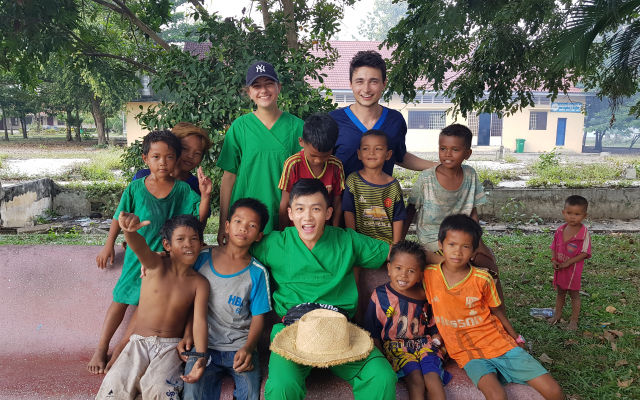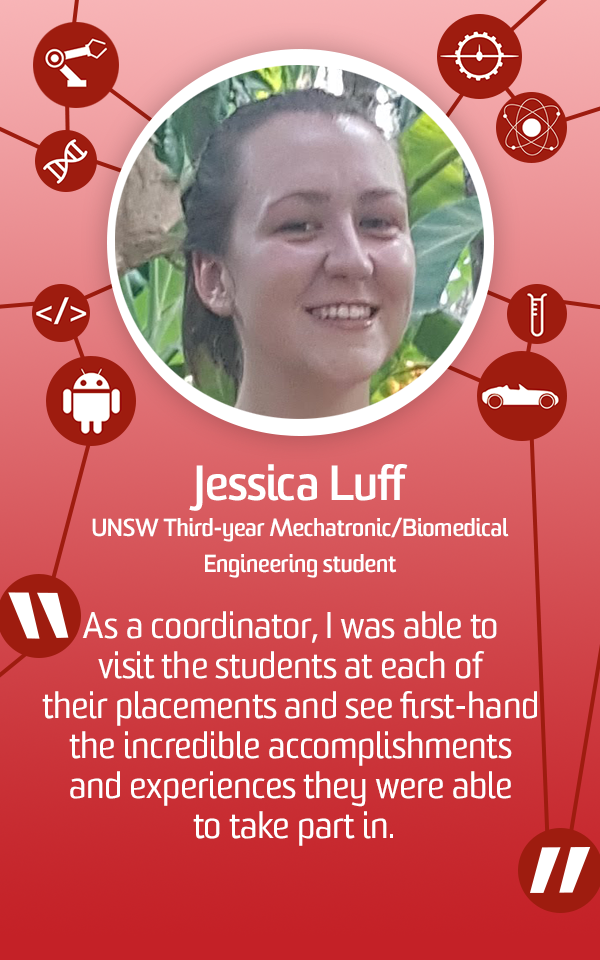
3 years, 109 students and 958 pieces of medical equipment later, the Engineering World Health Summer Institute continues to give UNSW engineering students the opportunity to impact communities around the globe.
Each year a group of students are trained to make repairs and modifications to extend the life of medical equipment, and make it better suited to the environment it is used in. In some provinces of Cambodia local hospitals are both underfunded and poorly resourced , and medical equipment donated from other countries has long surpassed its standard lifetime of use and replacement parts are beyond the budget of more rural hospitals. So for 2019 I was lucky enough to be invited back as a coordinator and instructor to guide 35 engineering students through the life-changing experience I had taken part of the year before, helping to bring new life to medical equipment in hospitals across Cambodia.
The opportunity to live and learn in another country, enhanced by the kindness and welcoming nature of Cambodian people is one that I will never forget. The Khmer people opened their arms and welcomed us into their homes and their workplaces, allowing us opportunities to live with a local Cambodian family, learn Khmer (the local language) each morning at the University of Puthisatra and filling our afternoons learning technical skills, including soldering and machine repair, with Dr Fryda from the United States. We spent weekends exploring the famous Siem Reap, riverside Kampot or exploring the city if Phnom Penh, forming strong bonds with each other as we learnt more about the beautiful country that we were currently calling home.
Our second month saw everyone split ways and head to their respective hospital placements. From the large cities of Battambang and Siem Reap, to the small rural towns of Oddar Meancchey and Kampong Thom, students repaired hospital equipment, learned from their hospital’s technicians and bonded with hospital staff. Some worked in large hospitals with lots of equipment, some worked in small hospitals with few departments and very limited equipment. In all placements, the machines repaired by the students went back into service, monitoring patient vital signs, sterilising surgical tools and illuminating surgeries.
As a coordinator I was able to visit the students at each of their placements and see first hand the incredible accomplishments and experiences they were able to take part in. From the Prey Vihear team scrubbing into a surgery to watch a leg reconstruction to the Pursat and Battambang teams designing and making oxygen concentration testers from machine scrap parts and the Stoung and Sihanoukville teams joining Khmer wedding celebrations, each and every team had these pivotal signature moments of their trip that grounds you in why you are there working in these communities.
Working in a foreign country does have its challenges, but to me that just makes it all the more worthwhile. From the first successful conversation held entirely in Khmer, to the first piece of equipment returned to a low resource maternity ward, to the final conference where the teams shared their successes and experiences, this trip is full of challenges overcome and goals accomplished.
I encourage anyone who wants to experience another culture, make an impact and learn some incredible skills to apply for the 2020 Engineering World Health Summer Institute to either Cambodia or Uganda. The trip counts towards 45 days of Industrial Training and runs from 15th December 2019 – 16 February 2020 and you can apply by heading to unsw.to/ewh-summerinstitute.
I guarantee you won’t regret it.
